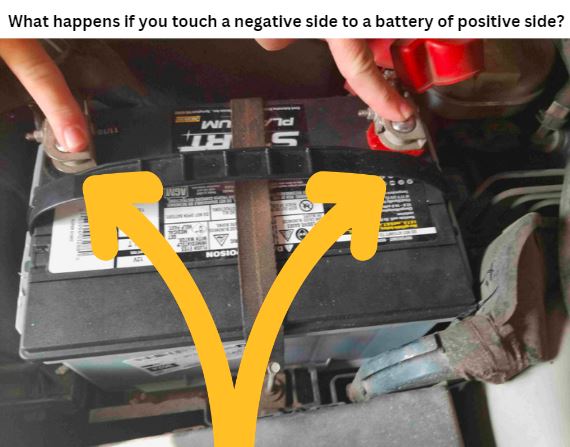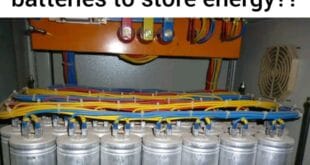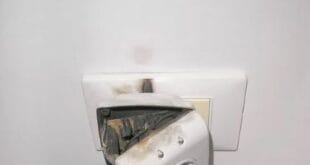Answer:
Touching the negative and positive sides of a battery together creates a short circuit, allowing a large current to flow between them. This can lead to rapid discharge of the battery, generation of heat, and potential damage to the battery or surrounding objects.
Reasoning:
Short Circuit: When the negative and positive terminals of a battery are connected directly, it creates a low-resistance path, allowing a large current to flow between them.

Rapid Discharge: The short circuit bypasses the normal load, causing the battery to discharge rapidly, potentially leading to overheating and damage.
Risk of Damage: Excessive current flow can damage the battery, leading to leakage, rupture, or even explosion in extreme cases.
FAQs:
Q: Why is it dangerous to touch the negative and positive sides of a battery together?
A: It creates a short circuit, allowing a large current to flow, which can damage the battery and surrounding objects.
Q: Can a short circuit cause a battery to explode?
A: In extreme cases, a short circuit can lead to overheating and gas buildup, causing the battery to rupture or explode.
Q: What are the signs of a short circuit in a battery?
A: Signs include rapid discharge, heating, sparking, or deformation of the battery casing.
Q: Can a short circuit damage other electrical components?
A: Yes, a short circuit can damage connected devices or electrical circuits by subjecting them to excessive current.
Q: How can I prevent accidental short circuits with batteries?
A: Always handle batteries carefully and avoid touching the positive and negative terminals together.
Q: What should I do if a battery short circuits?
A: Disconnect the battery immediately and avoid touching it, as it may be hot or leaking harmful chemicals.
Q: Is there a risk of electric shock from a battery short circuit?
A: While the voltage of most batteries is not high enough to cause electric shock, a short circuit can still pose a risk of burns or injury.
Q: Can a short circuit damage the wiring or connections of a battery?
A: Yes, excessive current flow can melt or damage wiring, terminals, or connectors connected to the battery.
Q: How do short circuits affect battery life?
A: Short circuits can significantly reduce battery life by causing internal damage or accelerating chemical degradation.
Q: Can short circuits occur in all types of batteries?
A: Yes, short circuits can occur in any type of battery, including alkaline, lithium-ion, or lead-acid batteries.
Related Questions:
What Happens if a Battery is Connected to the AC Supply?
Is a Charged Battery Heavier Than a Depleted One?
What Happens If I Touch Both Terminals Of A 12V Battery?
Why do batteries degrade over time?
What Happens if a Battery is Connected to the AC Supply?
What will happen if a phone battery is overcharged?
Do you think the 20-80% rule is as effective as people say to extend your battery life?
 Electrical Engineering World Wiring a Brighter Tomorrow!
Electrical Engineering World Wiring a Brighter Tomorrow!



